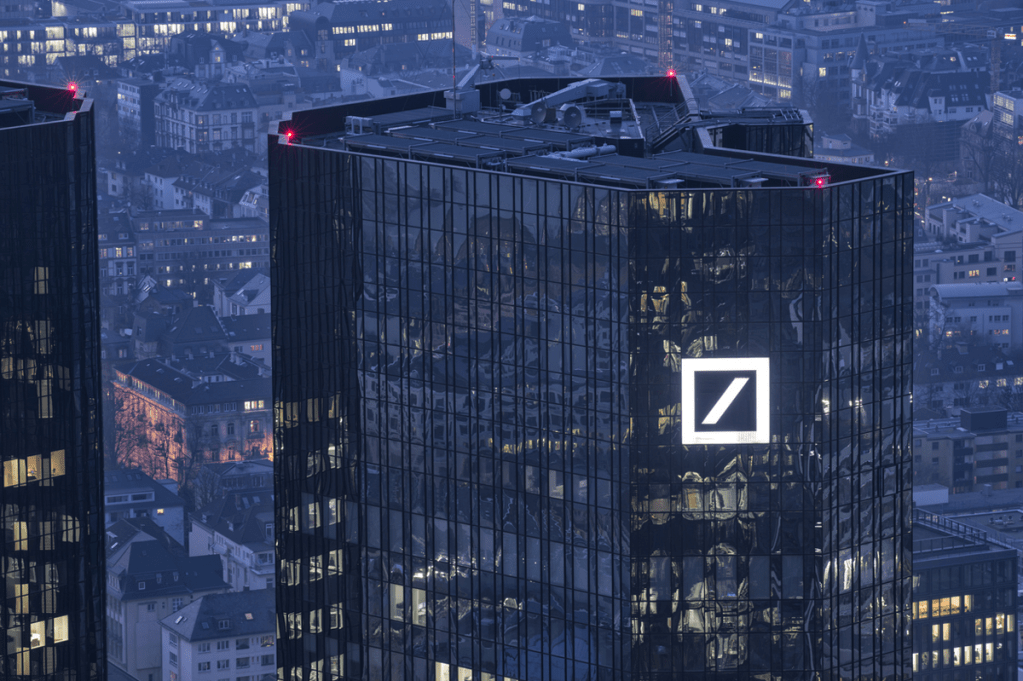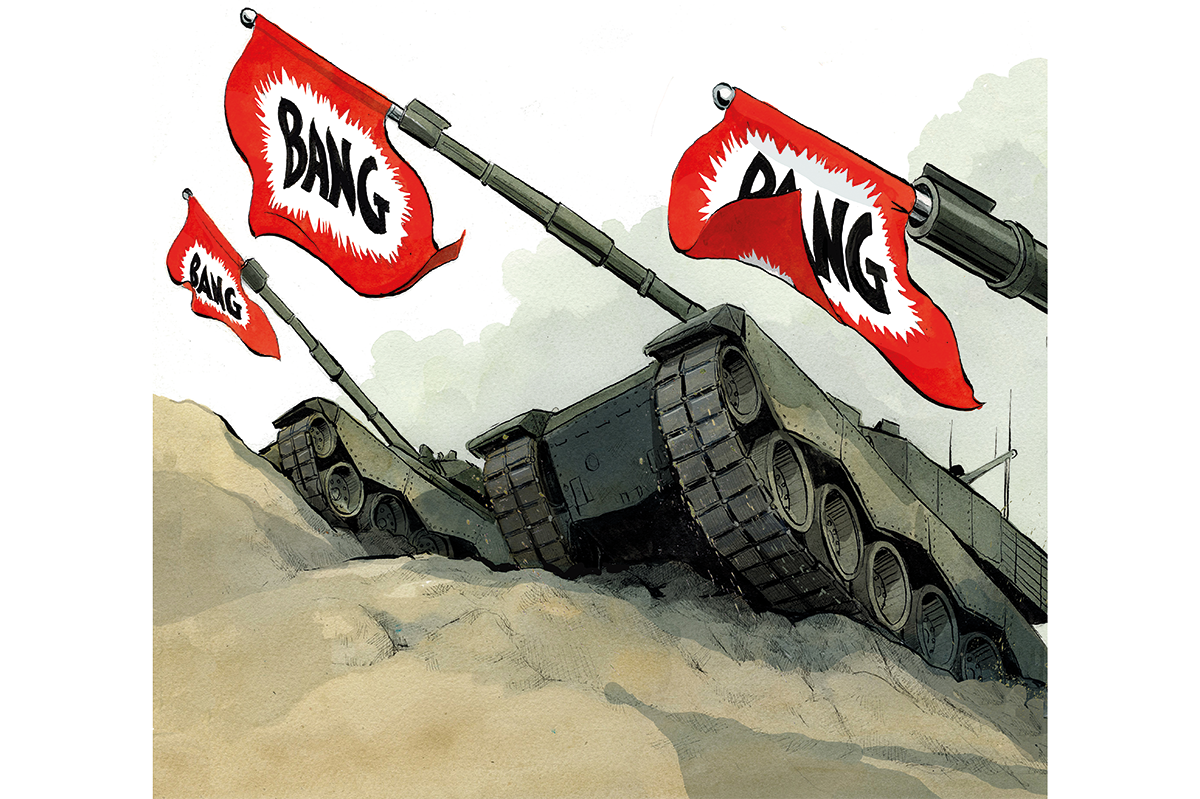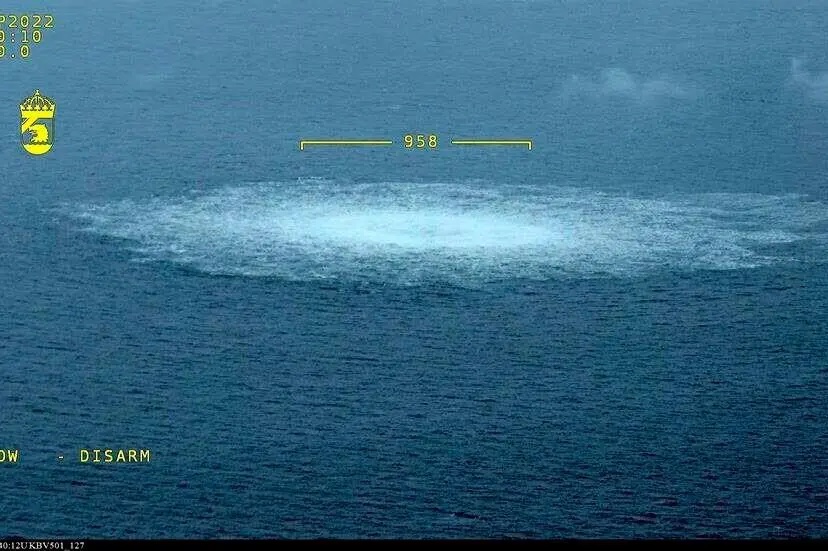It could be next month. It might be next week. Or it might well happen over the weekend. But Friday’s collapse in the share price of Deutsche Bank, and the huge rise in the cost of insuring its debt against default, means it is probably only a matter of time before there’s an intervention. It looks increasingly inevitable that Deutsche will require some form of rescue, led by the German government and the European Central Bank. The trouble is: that will be a threat to the entire eurozone.
To market insiders, the real surprise of the collapse in confidence in Deutsche Bank is that it took so long. On Friday morning, its share price dropped by 15 percent, while the cost of insuring against a default soared. The charts look eerily similar to Silicon Valley Bank two weekends ago, and to Credit Suisse last weekend. If you have any money in Germany’s largest bank, the only rational move right now is to get it out. Once a run like this starts it is impossible to stop.
Deutsche has been in trouble for years, much like Credit Suisse, with speculation about its survival swirling through the markets. If any major institution was going to lose the confidence of its investors during this crisis, it was always likely to be at the front of the line. It remains to be seen what happens next. But the only real way out will be for the German government and the ECB to step in with a guarantee to backstop Deutsche’s losses and to guarantee that depositors will be paid in full. They could decide to nationalize it, or else arrange a quick merger with a rival, most probably Commerzbank, or possibly France’s BNP Paribas.
Any fallout from a Deutsche bailout would hit the entire eurozone. On Friday, there were already signs of confidence ebbing in the other major banks across the zone. Shares in France’s BNP and Société Générale were down by 6 percent, Italy’s UniCredit by 4 percent, and Spain’s Santander by 4 percent. The core problem for the eurozone has always been that a poorly designed, dysfunctional single currency builds up huge surpluses in some countries and deficits in others, and all that money has to be recycled somehow through the banking system. Deutsche, as Germany’s largest bank and the main commercial lender, is right at the heart of that system. The losses on recycling all that money were always going to end up somewhere, and in the end, they will have to be paid for by German taxpayers.
A Deutsche collapse could bring the euro down with it. Unless the government and the central bank can shore it up over the weekend, very soon the entire currency will be in deep trouble.
This article was originally published on The Spectator’s UK website.

























